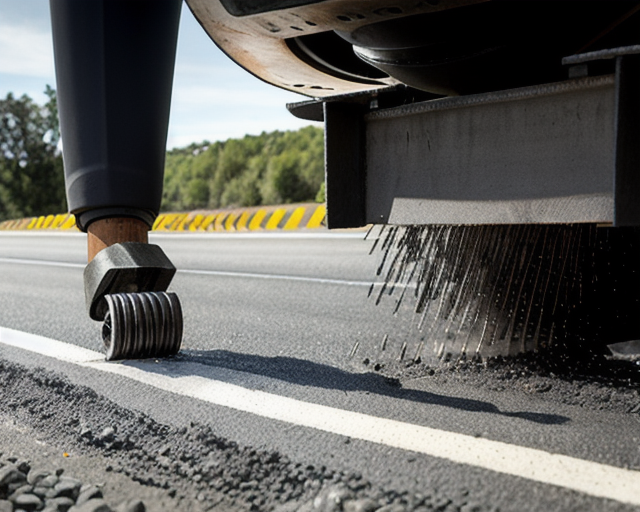As with most modern construction projects, success lies in the details. One such overlooked detail that significantly impacts the asphalt and concrete milling process is the road milling teeth. These essential tools, largely unnoticed by the untrained eye, play a pivotal role in ensuring precision, efficiency, and quality in milling operations. Visit the https://www.jyfmachinery.com/road-milling-teeth-for-asphalt-and-concrete/ to learn more.
Unveiling the Process
Asphalt and concrete milling is an intricate process that requires technical expertise and high-quality equipment. The process begins by deploying a milling machine fitted with sharp road milling teeth. These teeth chew away the worn-out layers of asphalt or concrete surfaces, preparing them for resurfacing or complete removal.
The road milling teeth are the workhorses of this operation, grinding down the hard surfaces with precision and control. Understanding the science behind this process is vital to appreciate the significance of road milling teeth. They are designed to work under extreme conditions, withstanding high heat and friction, while still ensuring an accurate cut.
Road Milling Teeth Technology
Modern road milling teeth are a marvel of advanced technology. Manufacturers incorporate features like heat-resistant coatings and specially designed cutting tips to enhance their performance and durability. For example, the use of carbide tips ensures a longer lifespan, while different shapes and patterns allow for varied cutting performance.
These technological advancements have revolutionized the milling industry. Today, these teeth can cut through the hardest materials while minimizing equipment wear and tear, contributing to the overall operational efficiency.
Understanding the Applications
Road milling teeth find applications in a variety of asphalt and concrete projects, each with unique challenges and requirements. For instance, a high-speed motorway rehabilitation project would require teeth with a particular design and durability to withstand the rigorous, high-velocity operation.
On the other hand, an urban road renovation might need teeth with a different cutting pattern to allow precise milling around utilities and fixtures. Each application requires careful selection of the road milling teeth to ensure optimal performance.
Key Considerations for Selection
Selecting road milling teeth requires careful consideration of various factors, including tooth design, material composition, and cutting patterns. For example, flatter teeth designs are often suitable for fine milling, while rounded teeth work well for full-depth applications.
The material of the teeth also greatly influences their performance. Carbide-tipped teeth, for instance, offer high resistance to wear and tear. Cutting patterns, in turn, determine the finish and speed of the operation. Your choice should align with your project’s unique demands to ensure successful milling.
Road Milling Best Practices
To optimize road milling operations, consider the following tips. First, regular maintenance of road milling teeth is vital for their longevity and performance. Regular checks for wear and damage can prevent unexpected breakdowns during operations.
Also, replacing worn-out teeth on time is crucial. Ignoring this can lead to decreased productivity and increased fuel consumption. Lastly, proper handling and storage of these teeth can save costs and prevent premature wear.
Conclusion
Road milling teeth play a defining role in successful asphalt and concrete milling operations. These essential tools, equipped with cutting-edge technology, perform the critical task of reshaping roads with precision and durability. By understanding their importance and functionality, we not only appreciate their contribution to modern infrastructure but also unravel the fascinating world of road milling technology. Remember, success in construction often lies in the tiny details, and road milling teeth are perfect examples of such crucial elements.

